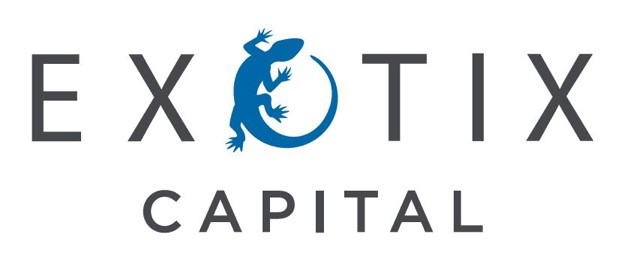EMTA Forum on Sub-Saharan Africa (NY) - Feb. 26
EMTA FORUM ON SUB-SAHARAN AFRICA
Tuesday, February 26, 2019
Sponsored by
ISDA Conference Center
10 East 53rd Street, 8th Floor
(between Madison and Fifth Avenues)
New York City
3:30 p.m. Registration
4:00 p.m. Panel Discussion
Opportunities and Challenges for Sub-Saharan Africa
Stuart Culverhouse (Exotix) – Moderator
Shanker Singham (Centre for Economics and Business Research)
Michael Cirami (Eaton Vance Management)
Unoma Okolo (Fidelity)
Neville Mandimika (Rand Merchant Bank)
5:00 p.m.
Cocktail Reception
Additional Support Provided by Rand Merchant Bank.
Registration fee for EMTA Members US$95 / US$695 for Non-members.
Nigerian Elections, South African Economy Dominate Agenda at EMTA SSA Seminar in NYC
After years of holding Seminars on Sub-Saharan Africa in London, EMTA held an inaugural panel discussion on the region in New York City on Tuesday, February 26, 2019. Exotix hosted the event, with additional support provided by Rand Merchant Bank.
The Seminar’s discussion was moderated by Exotix’s Stuart Culverhouse. He started the event by asking Neville Mandimika of Rand Merchant Bank to identify the major themes for the region. Mandimika suggested that key issues for investors to monitor in 2019 included elections, which could lead to political violence, as well as economic growth (while he maintained a 3.4% GDP growth forecast for the region in 2019, he underscored the distinction between fast-growing economies such as Ivory Coast and Ghana, and those that are contracting). Ratings outlooks were tilted to the positive side, he added, “so I advise caution, but I’m relatively upbeat.”
Culverhouse highlighted South Africa as a focus of EM investor attention, with upcoming elections, the release of the annual budget and concerns over Eskom. Unoma Okolo (Fidelity Investments) expressed concern that, despite a generally positive market reaction to the government budget, “we aren’t seeing underlying structural issues on Eskom being addressed…looking at South Africa warrants caution.” Public sector headcount remained a huge issue for the country, she warned, and the need for government support for Eskom “bodes negatively for South African fiscal strength.” In her view, South Africa no longer merited its remaining IG rating, although she didn’t anticipate a Moody’s downgrade of the sovereign.
Eaton Vance’s Mike Cirami seconded Okolo’s concern. In his analysis, the loosening of the South African budget during the global financial crisis hadn’t been corrected during the economic rebound, and remained loose due to corruption under President Zuma. “Anyone who now expects a miracle of macro-stability over social issues is wrong, I think,” he affirmed.
Just hours before the release of official results, Shanker Singham (Centre for Economic and Business Research) accurately predicted that President Buhari would be re-elected in Nigeria. However, he argued that, no matter the victor, the president would face the same structural challenges, with significant risks including trade policy, and rule of law issues (including the “troubling” suspension of the Supreme Court’s chief justice, and the insufficient acceptance of the sanctity of contracts). The large fine against MTN, and the government’s breach of contract with P&ID, “will have a chilling effect on investment in Nigeria.”
Culverhouse turned to smaller African credits. On Ghana, Okolo declared that, based on the “ok shape” of its balance of payments, another Fund program was not necessary, as long as Accra was able to maintain credibility with investors. This would be important as the country heads into the 2020 elections, she added.
“Kenya is a good story, with an asterisk net to it,” responded Mandimika, in response to Culverhouse’s question if the country was losing its shine. Mandimika cited progress on fiscal consolidation. He conceded that the shilling was overvalued, “but with high Central Bank reserves and high import cover, you can keep that party going on for a while.”
Cirami was not tempted by the wide spreads on Zambian debt, which he emphasized were justified based on the risk. “Their financial numbers are bad, and there is no indication that they will be improving,” he stated. Risks included the unknown treatment of Eurobond holders in any IMF deal, and, as always, the price of copper. Cirami clarified that, “I’m not going to say that Zambia will default next week, especially when China is investing in Africa, but it’s not a comforting situation.” He attributed the financial situation to “mismanagement for the past half-decade or so,” while stressing the country’s potential.
Culverhouse followed up on the role of Chinese investment in Africa, and whether its effects were beneficial or harmful. In Singham’s view, Chinese financing of Africa was ambiguous. “Funding from the US and UK attempts to promote ‘good’ economic policy choices, but China will often offer funds with less strings attached, and it tends to be agnostic about economic policy choices.” Furthermore, in his analysis, Chinese inflows were focused predominantly on short-term natural resource projects, and don’t move African countries up the value chain.
Cirami reasoned that, when Chinese inflows were an important part of an African country’s budget, additional compensation was warranted if the money was misused or misallocated. “However, every situation is different, and you need to look at the details,” he concluded.
Okolo offered Ethiopia as an example of Chinese capital potentially boosting the country’s manufacturing effort. On the other hand, she conceded that, “there is a high correlation between a lot of Chinese funding and governance issues.” Mandimika pointed out that securing Chinese financing was often the result of being unable to secure other funding sources.